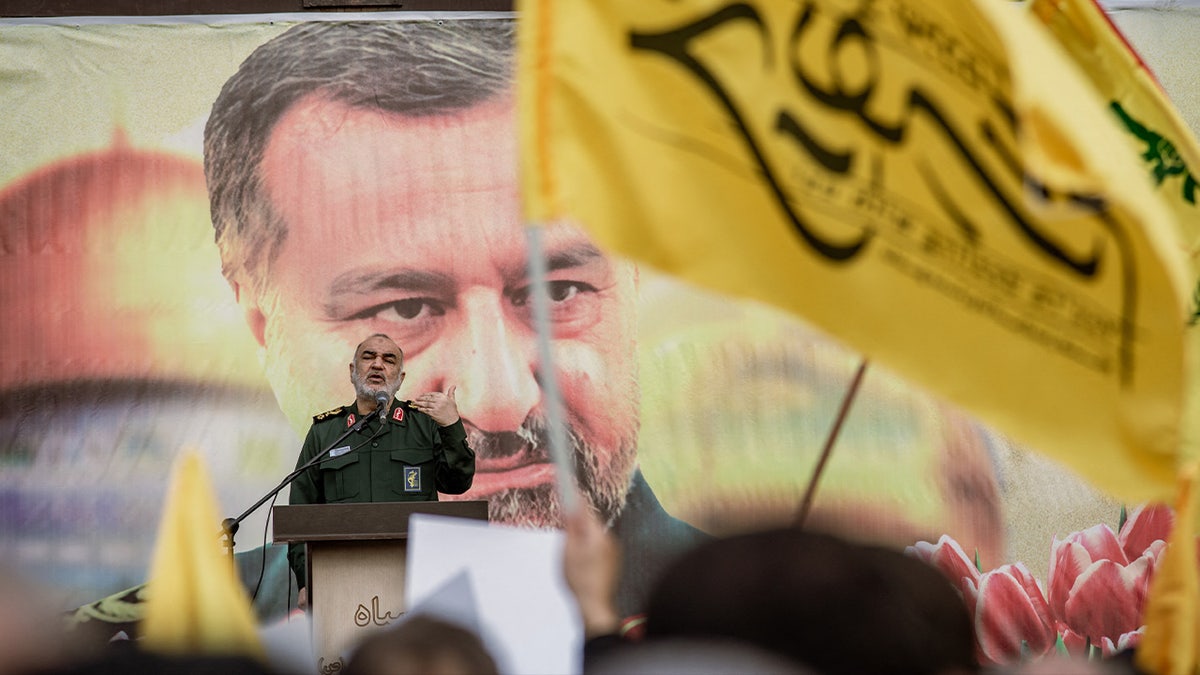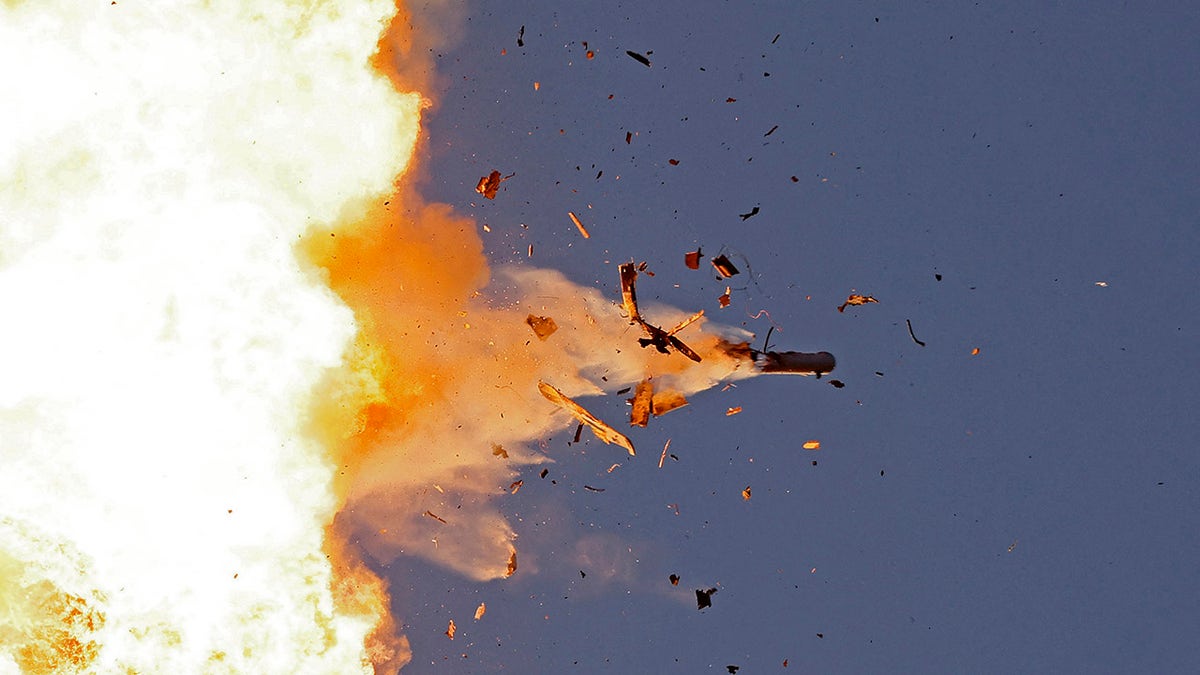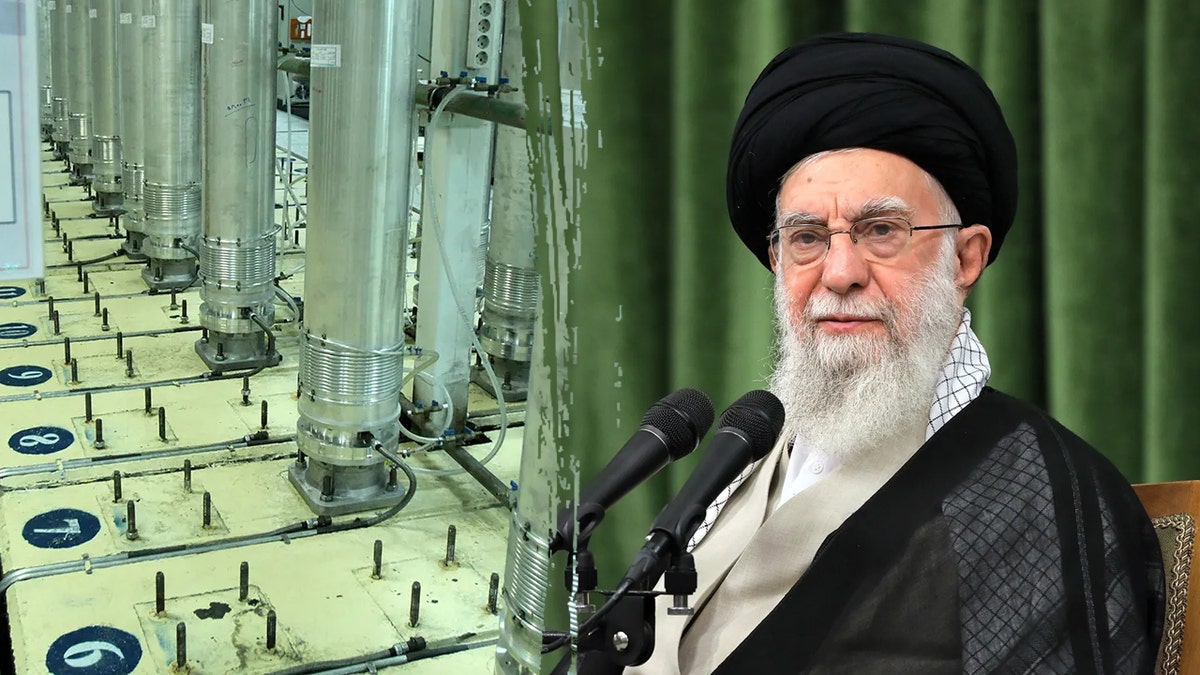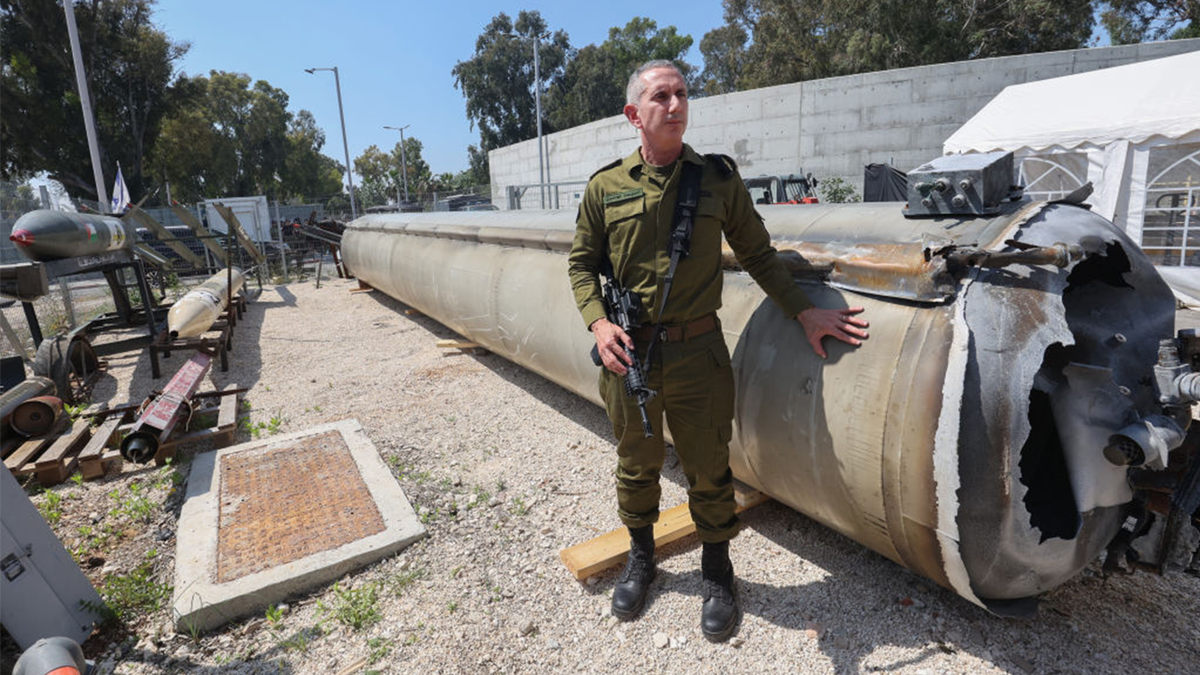Iran has the United States in their ‘crosshairs’: Dan Hoffman
Former CIA station chief Dan Hoffman breaks down the ongoing tensions between the U.S. and the Middle East and its impact on foreign policy on ‘Fox News Live.’
Iran on Monday continued its threat of a "nightmare" attack on Israel following the killing of Hamas leader Ismail Haniyeh in late July, as international concerns remain high over Tehran’s nuclear development program which has run unchecked for more than three years.
Commander of Iran’s Islamic Revolutionary Guard Corps Hossein Salami said "the nightmare of Iran's inevitable response is shaking Israel day and night," reported the Jerusalem Post, citing Saudi-owned news outlet Al-Arabiya.
The commander reportedly claimed that Israeli leaders are anxious over the ambiguous threat of what will be a "painful and different" attack than "what you expec[t]."

Hossein Salami, commander in chief of the Islamic Revolutionary Guard Corps, delivers a speech during the funeral ceremony of Iranian adviser in Syria, Razi Mousavi in Tehran, Iran, on Dec. 28, 2023. (Hossein Beris/Middle East Images/AFP via Getty Images)
Despite the ominous tone set by Salami, Iran has been levying similar threats for over a month at the Jewish state following the killing of Haniyeh during a visit to Tehran on July 31.
Iran has laid the blame squarely on Israel for the assassination, in which it claimed a precision strike missile was used, though Jerusalem has not taken credit for the killing.
The U.S., along with other Middle Eastern nations, have warned Tehran against attacking Israel amid fears that a broader regional war could break out, though concerns remain that Iran could look to launch retaliatory strikes through Hezbollah – the Lebanon-based terrorist organization it has backed for decades.
A member of Israel’s Foreign Affairs and Defense Committee in the Knesset, Nissim Vaturi, echoed these concerns on Monday and said he believes it is just "a matter of days" before war between Israel and Hezbollah breaks out in Lebanon.
Vaturi said Israel needs to take a provocative approach and pre-emptively strike Hezbollah's strong holds in Lebanon through a series of airstrikes followed by ground invasion – a scenario experts have warned will cause casualty rates that could be higher than those that have incurred during the nearly one-year-long war in Gaza.
"I think it’s time to deal with the north," he said, according to The Times of Israel. "Our patience has run out.
"There’s no other way," he continued, adding that Beirut’s Dahiyeh suburb — a major stronghold for Hezbollah outside the capital city — "will look like Gaza."
Iran has yet to specify how it intends to launch this long-awaited retaliatory strike against Israel, though its reported supply of ballistic missiles to the terrorist organization has kept security experts on heightened alert.

This photo taken from a position in northern Israel shows a Hezbollah UAV intercepted by Israeli air forces over northern Israel on Aug. 25, 2024. (Jalaa Marey/AFP via Getty Images)
HEZBOLLAH IS THE 'X-FACTOR' IN LOOMING ISRAEL, IRAN WAR WITH 'NATION STATE CAPABILITIES'
Iran is not believed to possess nuclear grade weaponry at this time, but a warning issued by the United Nations nuclear watchdog on Monday once again brought renewed attention to the fact that Tehran’s nuclear program has run unchecked for the last three and half years.
"It has been more than three and a half years since Iran stopped implementing its nuclear-related commitments under the JCPOA," Director General of the International Atomic Energy Agency Rafael Mariano Grossi told the agency’s board of directors. "Therefore, it is also over three and a half years since the Agency was able to conduct complementary access in Iran.
"Consequently, the Agency has lost continuity of knowledge in relation to the production and inventory of centrifuges, rotors and bellows, heavy water and uranium ore concentrate," he added.
Grossi said that Iran is known to have increased its stockpiles of highly enriched uranium metals of not only 20% purity levels, but 60% – which is just shy of the steps needed to reach weapons grade uranium which is enriched to 90% purity.

Iranian Supreme Leader Ayatollah Khamenei alongside a look inside a uranium plant. (Getty Images)
"There has been no progress in resolving the outstanding safeguards issues," he said, pointing to Iran’s false claims that it has declared all nuclear activities, materials and locations. "I call upon Iran to implement the Joint Statement through serious engagement with the Agency’s concrete proposals."
Rossi said he called on new Iranian President Masoud Pezeshkian to abide by agreements made under a March 4, 2023 joint statement and urged the president to meet with him in the "not too distant future" so the pair could "establish a constructive dialogue that leads swiftly to real results."
CLICK HERE TO GET THE FOX NEWS APP

Israeli military spokesman Rear Adm. Daniel Hagari poses next to an Iranian ballistic missile, which fell in Israel on the weekend, during a media tour at the Julis military base near the southern Israeli city of Kiryat Malachi on April 16, 2024. (Getty Images)
The European Union (EU) on Monday further accused Iran of providing short range ballistic missiles to Russia to aid its war effort against Ukraine, citing "credible" information provided by allied nations, reported Radio Free Europe.
The EU is reported to still be investigating the information, but EU spokesman Peter Stano said if Iran is discovered to have provided the escalatory arms to Moscow, the response would be "swift" and would include "new and significant restrictive measures against Iran."
The Kremlin on Monday did not directly deny having been sent the missiles which are capable of carrying nuclear, chemical and conventional warheads.









































